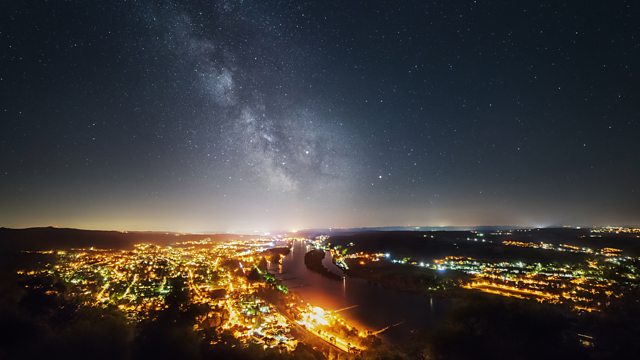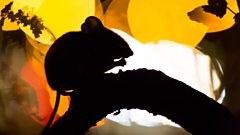Can we save our night skies?
Light pollution blots out our view of the cosmos and disrupts wildlife at night. Prompted by a question from a listener, we look at the best ways to combat it.
Our connection to the night sky spans cultures and millennia: observing the stars and planets helped our ancestors navigate the world, tell stories about the constellations, and understand our place in the universe. But these days, for the vast majority of us, seeing the stars is getting harder. 80% of people live under light polluted skies, and in many cities you’re lucky to see a handful of stars at night.
This state of affairs is bothering CrowdScience listener and keen stargazer Mo from Salt Lake City in the USA, who wonders if there’s anything we can do about light pollution. Of course, we could simply turn out all the lights, but that’s unrealistic. So what are smarter ways of lighting our communities to preserve our view of the cosmos?
Increasingly worried by the effect of artificial lighting on the ability to observe stars, astronomer Dr Jason Pun set up a series of monitoring stations to continuously measure ‘sky glow’. By comparing sky glow across the world, he wants to figure out which approaches work best.
One community taking an active approach is the South Downs National Park in South East England, one of a number of Dark Sky Reserves around the word. We visit the park and speak to the Dark Skies Officer there, to find out how people are coming together to turn down their lights and keep the night dark.
And it’s not just stargazing that’s threatened by light pollution. Artificial light at night disrupts the circadian rhythms of wildlife. We visit a project in rural Germany looking into the benefits of dark-sky-friendly lighting on insect populations there.
With contributions from Dr Jason Pun, Paulina Villalobos, Dan Oakley, Doug Jones, Dr Sibylle Schroer and Sophia Dehn.
Presented by Anand Jagatia with additional reporting by Felix Franz
Produced by Cathy Edwards
[Image credit: Getty Images]
Last on
More episodes
Clip
-
![]()
How does light pollution affect wildlife?
Duration: 02:37
Broadcasts
- Fri 3 Sep 2021 19:32GMT91�ȱ� World Service
- Sat 4 Sep 2021 01:32GMT91�ȱ� World Service Europe and the Middle East
- Sun 5 Sep 2021 01:32GMT91�ȱ� World Service East and Southern Africa & West and Central Africa only
- Mon 6 Sep 2021 03:32GMT91�ȱ� World Service Australasia, South Asia & East Asia only
- Mon 6 Sep 2021 04:32GMT91�ȱ� World Service Americas and the Caribbean
- Mon 6 Sep 2021 08:32GMT91�ȱ� World Service
- Mon 6 Sep 2021 12:32GMT91�ȱ� World Service except East and Southern Africa, East Asia, South Asia & West and Central Africa
Podcast
-
![]()
CrowdScience
Answering your questions about life, Earth and the universe



